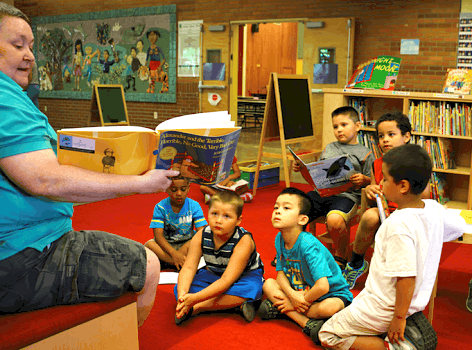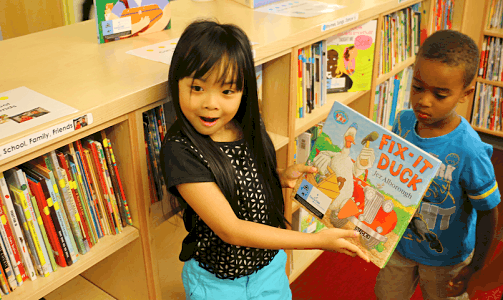
When kids think of summer slide, they may imagine fun times at the water park. But for educators and parents, summer slide – or the learning loss that occurs when kids are on break from school – is a big concern.
Summer Slide has been researched for more than 100 years – when public schools in the U.S. first began taking breaks over the summer. And since then, the research has shown that kids need ongoing opportunities to learn and practice essential skills like math, science and reading, or they lose ground. Today, summer slide accounts for up to 80 percent of the achievement gap between children from low- and middle-income families according to Richard L. Allington and Anne McGill-Franzen, editors of “Summer Reading: Closing the Rich/Poor Achievement Gap.”
Researchers say one reason summer slide disproportionately affects kids in lower-income homes is that they have fewer educational opportunities during the summer. From summer science camps to swim lessons and summer reading challenges, kids in middle-income families have far more access to often costly but valuable learning opportunities than their peers from lower-income families. Another factor that affects summer learning loss is nutrition: During the school year, many children from low-income families get a healthy, balanced breakfast and lunch at school. That often disappears during summer break. And research shows that chronic hunger can both make learning difficult and hinder the brain’s growth over time. The result? Children from low-income families lose two- to three-months in reading and math achievement each summer. Meanwhile, kids from middle-income families actually gain a month of reading skills over the same period. By ninth grade, that annual, recurring Summer Slide leaves kids from lower-income families about two years behind their peers. Educators across the country are trying new ways to reduce the steep price low-income children pay for long summer breaks. One way is through summer learning programs. Children’s Institute, through the Early Works initiative, is a partner at Earl Boyles Elementary school in East Portland where events and programs are held throughout the summer to reduce Summer Slide. At Earl Boyles, 84 percent of students come from low-income homes and 30 percent speak English as a second language, meaning most of the school’s children are vulnerable to summer learning loss. The Earl Boyles summer learning program serves these students with free educational opportunities and community events, including regular reading programs, free meals and activities to encourage learning and fun.

Nearly all types of summer learning programs like the one at Earl Boyles can reduce or eliminate Summer Slide, according to researchers who study the issue. The National Summer Learning Association recommends summer enrichment like the activities and programs at Earl Boyles Elementary for students from low-income households. But when those opportunities aren’t available, there are steps that parents, caregivers and educators can take to help reduce summer learning loss. Tips include using local libraries to read as much as possible, visiting area museums, which often have free visitation days, and getting plenty of sleep during the summer. According to the Campaign for Grade Level Reading, kids who read four or more books over the summer experience less summer learning loss than peers who didn’t read, regardless of socioeconomic level, ethnicity and previous academic achievements. For more information on the Earl Boyles Early Works program, visit our page about Early Works. For more information on how educators, parents and caregivers can help reduce summer learning loss, visit the National Summer Learning Association. For more information on how to reduce summer learning loss and the importance of reading at grade level, visit the Campaign for Grade Level Reading.
Read more about Lane and Wallowa counties becoming leading communities in Grade Level Reading.
